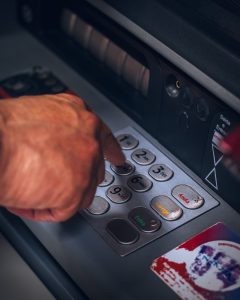Forex trading involves buying and selling currencies on the foreign exchange market. Traders engage in this activity to make a profit by taking advantage of the fluctuations in exchange rates. However, forex trading is not free, and traders pay commissions to brokers for their services. When these commissions are high, traders may wonder why they are paying so much. In this article, we will explore some of the reasons why forex commissions may be high.
1. Regulation and Compliance Costs
Forex brokers are regulated by financial authorities in the countries where they operate. These regulations are designed to protect traders and ensure that the brokers operate in a fair and transparent manner. Compliance with these regulations involves significant costs for the brokers, such as licensing fees, legal expenses, and staff training. These costs are passed on to traders in the form of higher commissions.
2. Market Access and Liquidity
Forex brokers provide traders with access to the foreign exchange market. This access requires the brokers to have relationships with liquidity providers, such as banks and financial institutions. These providers charge fees for their services, and the brokers pass on these fees to traders in the form of higher commissions. Additionally, the forex market is highly liquid, meaning that traders can buy and sell currencies quickly and easily. However, this liquidity comes at a cost, and the brokers charge higher commissions to compensate for the risks they assume when facilitating trades.
3. Technology and Infrastructure
Forex trading is a complex and fast-paced activity that requires sophisticated technology and infrastructure. Forex brokers invest heavily in these systems to ensure that they can execute trades quickly and efficiently. These systems include trading platforms, data feeds, and other software and hardware. The costs of maintaining and upgrading these systems are passed on to traders in the form of higher commissions.
4. Customer Support and Education
Forex brokers provide customer support and education to their clients. This support includes assistance with trading strategies, technical issues, and account management. Additionally, brokers may offer educational resources such as webinars, videos, and training courses. These services require significant resources, such as staff time and expertise, and the costs are passed on to traders in the form of higher commissions.
5. Profit Margin
Forex brokers are for-profit businesses, and they must make a profit to stay in business. The commissions they charge are a significant source of revenue, and they must set their prices in a way that allows them to cover their costs and make a profit. Additionally, brokers may charge higher commissions to traders who engage in high-risk or complex trading strategies, as these activities require more resources and carry more risk for the broker.
Conclusion
Forex commissions may be high for a variety of reasons, including regulation and compliance costs, market access and liquidity, technology and infrastructure, customer support and education, and profit margin. Traders should be aware of these factors when choosing a forex broker and should consider the value of the services provided by the broker when evaluating the cost of commissions. By understanding the reasons for high commissions, traders can make informed decisions about their forex trading activities.






